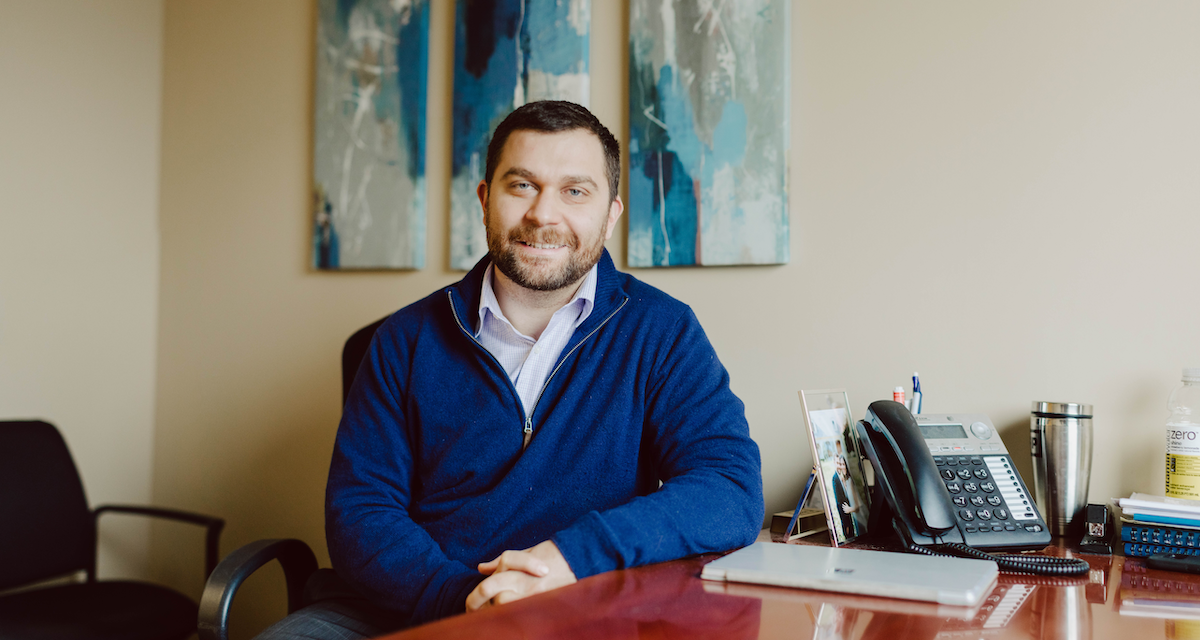When People are the Bottom Line
A version of this article appears in the spring 2019 issue of STILLPOINT magazine under the title “Vocation as: An Investment.”
Caleb Harty ’10, CFP, may have a knack for numbers, but he much prefers people over paper.
That was one of the lessons learned during his first (and only) semester in an economics graduate program in Canada. Harty abandoned the lackluster endeavor and decided to follow advice from a family friend: “You should consider financial services,” he said, “because it’s a people business.”
He started his own financial services practice in 2010, which today is Harty Financial in Middleton, MA. “A lot of what I do now is interacting with people and helping them solve problems,” he says, like how to juggle planning for college and retirement while also keeping giving a priority. “And that’s exciting.”
Beyond the typical aspects of financial planning, like retirement and life insurance, Harty is one of few financial planners in the Boston area specializing in special needs planning—meaning he helps families who have a child with special needs navigate public benefits and use their own resources to plan well for their child’s future and for their own.
Most parents plan to provide financially for their children up to a certain point—when they turn 18, perhaps, or graduate from college. But, Harty says, “If the child has some kind of intellectual or physical disability, the parents might have to provide financially for their entire lives in some shape or another.”
“Parents need to know how much money to leave their children, and what it’s going to cost to provide for them,” and that often depends on the severity of the child’s individual circumstances, he says. Because there’s a great lack of public resources and information on these topics, Harty goes beyond individual work with clients to use his expertise generously—offering workshops at places like Northeast Arc in Danvers, MA, and writing for national publications like Exceptional Parent magazine as well as contributing to Investment News.
Harty’s commitment to this niche of special needs planning is a personal one—inspired by his brother-in-law, who has Down’s Syndrome, and a former co-worker’s son, who is autistic.
“I feel like I’m adding value to people’s lives by using my background and skills to serve people,” he says. “I’m very invested because it’s my business, but I don’t see it as a job. I see it as a high calling to serve clients, to put their interests ahead of my own.”
For Harty, work is important. But so is play. The double major in economics and recreation, sport and wellness (recreation and leisure at the time) went on to complete the National Outdoor Leadership School, a five-week intensive course in the Yukon territory in Canada, and recently became a certified emergency medical technician. He snowboards, hikes, kayaks, and plans to do volunteer ski patrol next season.
Whether he’s assisting an injured skier or leading a group expedition or helping clients crunch numbers, “the common denominator,” he says, “is people.”
 The Bell
The Bell